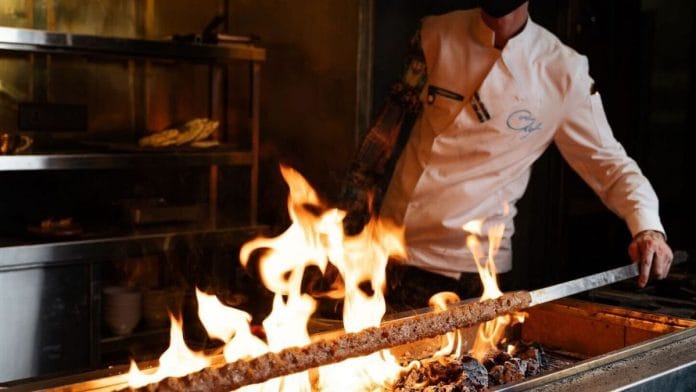New Delhi: Turkish student Ahmet Cemil came to Delhi in 2016 with a plan: study at Jamia Millia Islamia for two years and then head back home. But fate had other ideas. He met Priyanka from Tamil Nadu, fell in love, and set down roots here. Now, the two are winning hearts with Istanbul Baklawa—their Lajpat Nagar sweet shop.
In just four months, it’s become one of Delhi’s hottest dessert spots, with people travelling from across the city for their signature chocolate kunafa and Turkish coffee.
First came the Korean craze, and now there’s a Turkish food takeover in Delhi. In just three years, more than 20 Turkish eateries have sprung up across Delhi-NCR, from upscale restaurants serving Ottoman-style delicacies to cloud kitchens. Many are flying down chefs from Turkey to nail authentic flavours. The likes of fettuccine alfredo, zinger burgers, and Korean BBQ have stiff competition from adana kebap, pilaf, pide, and kunafa, all now part of Delhi’s food vocabulary.
“Delhi is home to all international cuisines. Turkish food is late to the party, but I am glad it is finally having a moment of its own,” said Cemil. “Also, it’s about time people stop limiting Turkish food to just hummus, mezze platters, and baklava. There is so much more.”
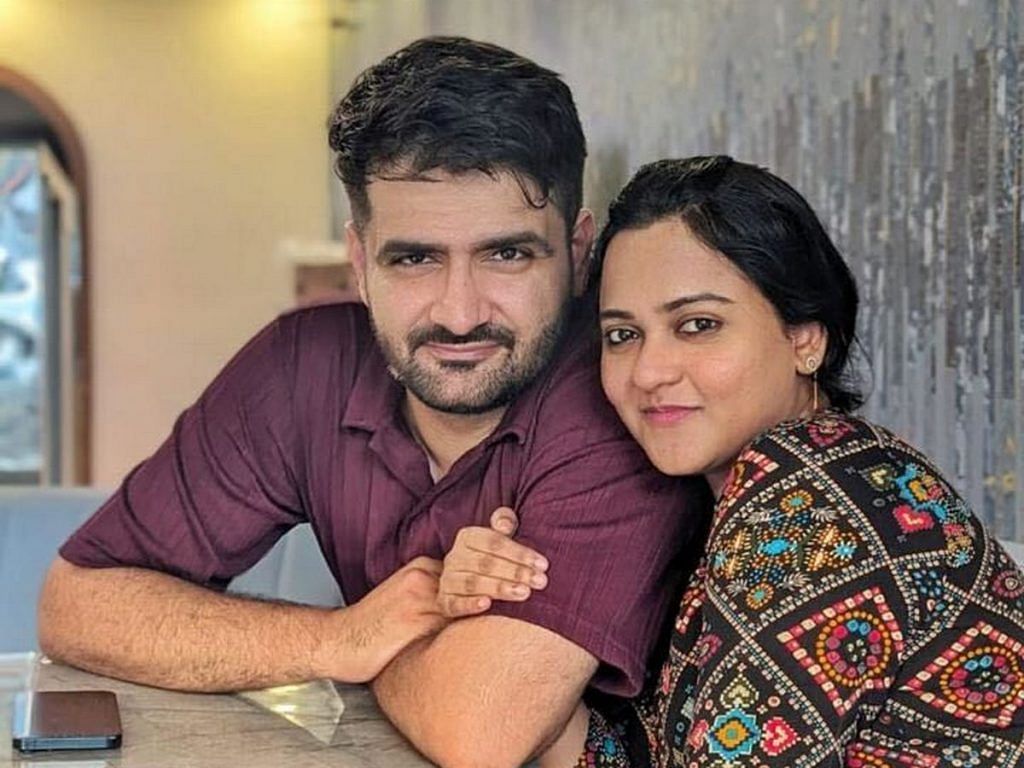
At the heart of this Turkish wave are two forces — tourism and TV dramas.
“Last year, approximately 2,75,000 Indian tourists visited Turkiye, and by August this year, the number had already reached 2,20,000. The total projections for 2024 is 350,000,” Turkish ambassador to India Firat Sunel told The Print.
Cities like Istanbul, Antalya, Bodrum, and Cappadocia are becoming go-tos for destination weddings and film shoots, with Bollywood hits like Tiger 3, Race 2, and Dil Dhadakne Do showcasing these picturesque locations.
Then, there is the rising popularity of dubbed Turkish shows. Korean dramas like Legend of the Blue Sea and Crash Landing On You have been replaced by Pyaar Lafzon Mein Kaha, Öykü, and Mr Wrong.
“The attention span of Delhiites is much like a baby’s. They are always looking for something new,” said Majaz Khan, owner of Ata Turk. The 42-year-old initially ran a Turkish restaurant in Shaheen Bagh before converting it into a cloud kitchen in Greater Kailash 1 earlier this year.
Despite the city’s fickle taste buds, he said there’s always space for favourites.
“The best part of Delhi food trends is that they come and stay,” Khan added. “So, you can keep hopping from one cuisine to another, but if you ever want to circle back to a previous cuisine, you’ll find it waiting for you right there.”
Also Read: New Sri Lankan cookbook unites the island’s food cultures—Tamil, Sinhala, Arab, European
Move over mezze
For 31-year-old Muhammad, stopping by Istanbul Baklawa for a cup of Turkish coffee is a ritual whenever he’s in Lajpat Nagar. His work as a translator in medical tourism takes him across the world, including Turkey, and he’s a big fan of the eatery’s baklava, especially the ‘carrot slice’ version—all imported directly from Turkiye.
“This is as authentic as it gets,” said Muhammad, who has visited Turkey nearly ten times.
Baklava made in India uses sugar extracted from sugarcane, but in Turkey, it’s made with beet sugar, which changes the flavour and sweetness.
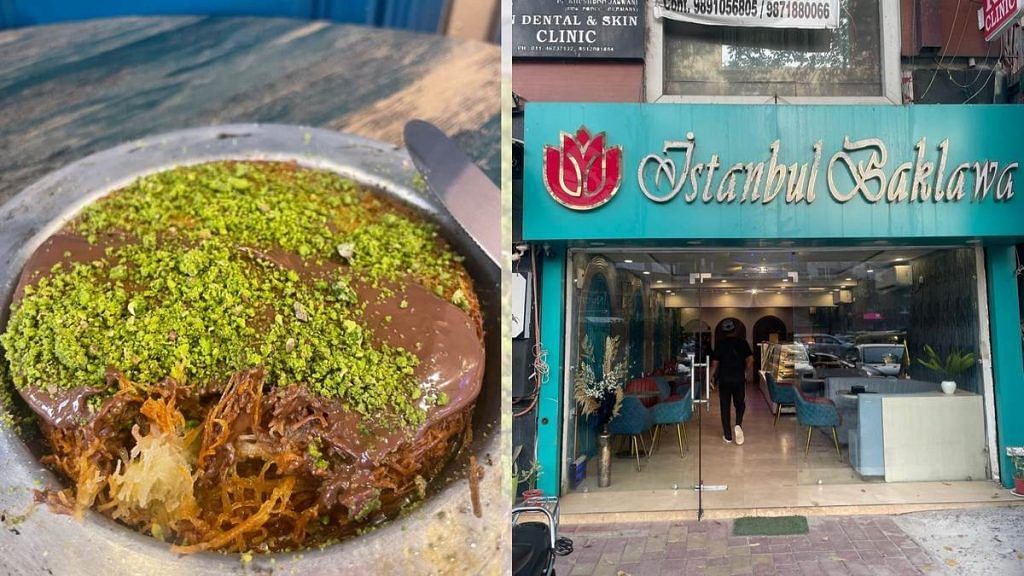
For connoisseurs like Muhammad, the Indian version of baklava just doesn’t cut it.
“It is not just about sweetness. The water and environmental factors also contribute to the taste,” he said, sipping Turkish coffee as he waited for his baklava to be packed.
While tourism has opened Delhiites’ palates, the Turkish embassy’s efforts in India have also played a big role. Events like ‘Turkish Breakfast’ and ‘Turkish Cuisine Week’ have been key in introducing these flavours to the city.
“As part of a growing tradition, the embassy has hosted a series of events every May for ‘Turkish Cuisine Week’ over the last two years, which helps to showcase the diverse flavours of Anatolia,” said Turkish Ambassador Sunel.
In 2024, the spotlight was on Turkish Aegean cuisine, known for its fresh, seasonal vegetables, generous use of premium olive oil, and simple yet vibrant dishes such as zeytinyagli patlican, featuring brinjals and tomatoes.
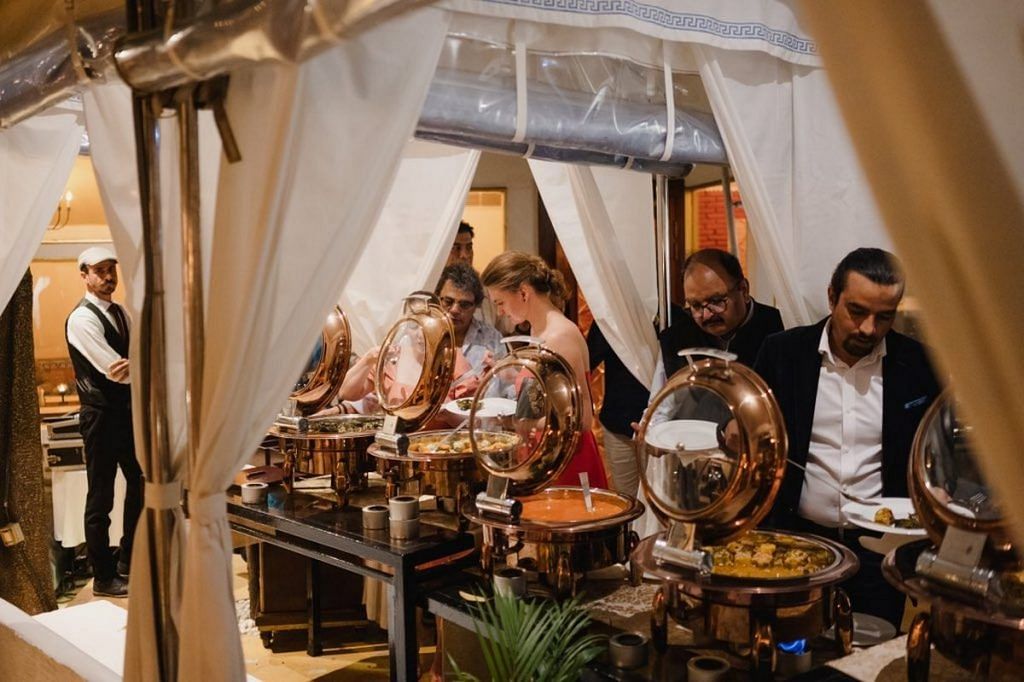
“Turkish cuisine has boomed in the last two years, with people travelling to Turkey, Dubai, and other Gulf countries,” said Sarah Hussain, a Delhi-based food blogger who has been documenting the city’s ever-evolving food scene for the past decade, with over 7 lakh Instagram followers who take her food advice very seriously.
Hussain first discovered Turkish cuisine during her travels five years ago.
“I tried local and fresh produce in Gaziantep, and in Istanbul the street-style shawarmas, vegetarian dips like hummus and muhammara, salads like tabuleh, and chicken, lamb, and veg kebabs,” she recalled.
Her five-year-old YouTube video on that trip, titled ‘Indian Girl Explores Istanbul’, has over 148,000 views and hundreds of comments, with many calling the city their “dream” destination.
Turkish food in Delhi once meant hummus, mezze platters, and the dramatic spectacle of Turkish ice cream. But that’s changing. Many restaurants—such as Khubani, Baris, Diablo, Cosy Box, and Ophelia—are going beyond tried-and-tested favourites and bringing the full range of Turkish flavours to the city’s tables.
“For a change, they are presenting Turkish food in all its authenticity,” said Hussain.
Authenticity with ‘ambience’
Foodies have different takes on which restaurant truly set the standard for authentic Turkish cuisine in Delhi. Some point to Hotel Ashok’s Ophelia, which has been around for five years, but many swear by the three-year-old Khubani in Aerocity, with its immersive experience centred on Turkish culture.
Behind Khubani are the Madan brothers—Sharad and Naresh—who also run seven outlets of the casual-dining chain Imperfecto in Delhi.
But the Turkish restaurant is their passion project. To ensure they were serving up the real thing, they’ve always had a Turkish chef. It’s currently Chef Seref Kargioglu, who came from Turkey two years ago. Other restaurants like Baris, Diablo, and Cosy Box have also followed suit and hired Turkish chefs.
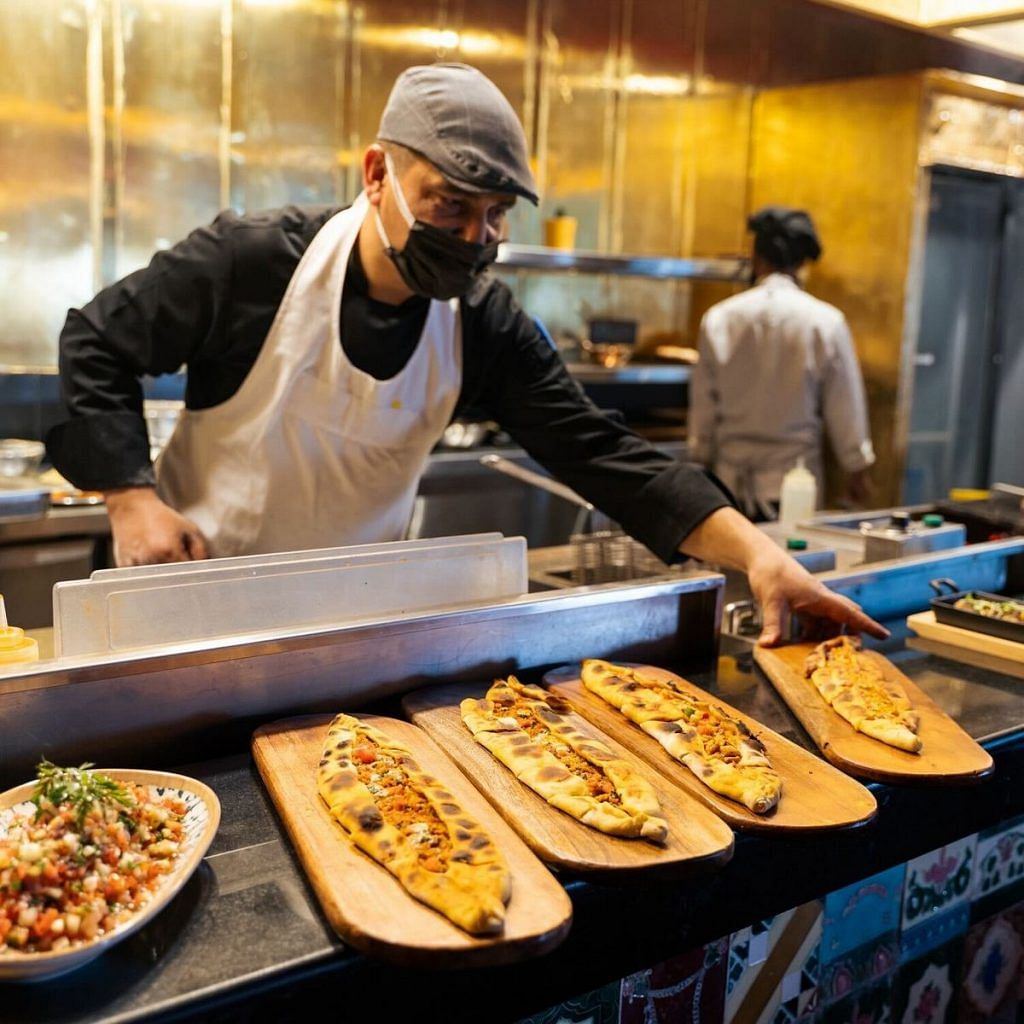
“It was essential to reflect the authenticity and precision of Turkish flavours,” said 41-year-old Sharad Madan. “There’s a difference when you experience food crafted by someone who grew up with these flavours—it adds a depth that’s hard to replicate.”
For Sharad, the love of Turkish cuisine runs deep.
“On one trip, I remember savouring baklava in a small café in Istanbul with traditional Turkish coffee,” he recalled. The ambiance and aromas left a lasting impression and he set about recreating “the same experience” in Khubani, where, he noted, a meal for two averages around Rs 10,000 with drinks included.
With its red-hued foyer, shimmering chandeliers, and decor blending Indian influences with Persian and Middle Eastern elements, Khubani has gone all out for its Turkish fusion look.
“We’ve handpicked every element, from the intricate Persian rugs with tikari work from Rajasthan to the grand fountain and hand-cut mirrors,” Sharad proudly declared.
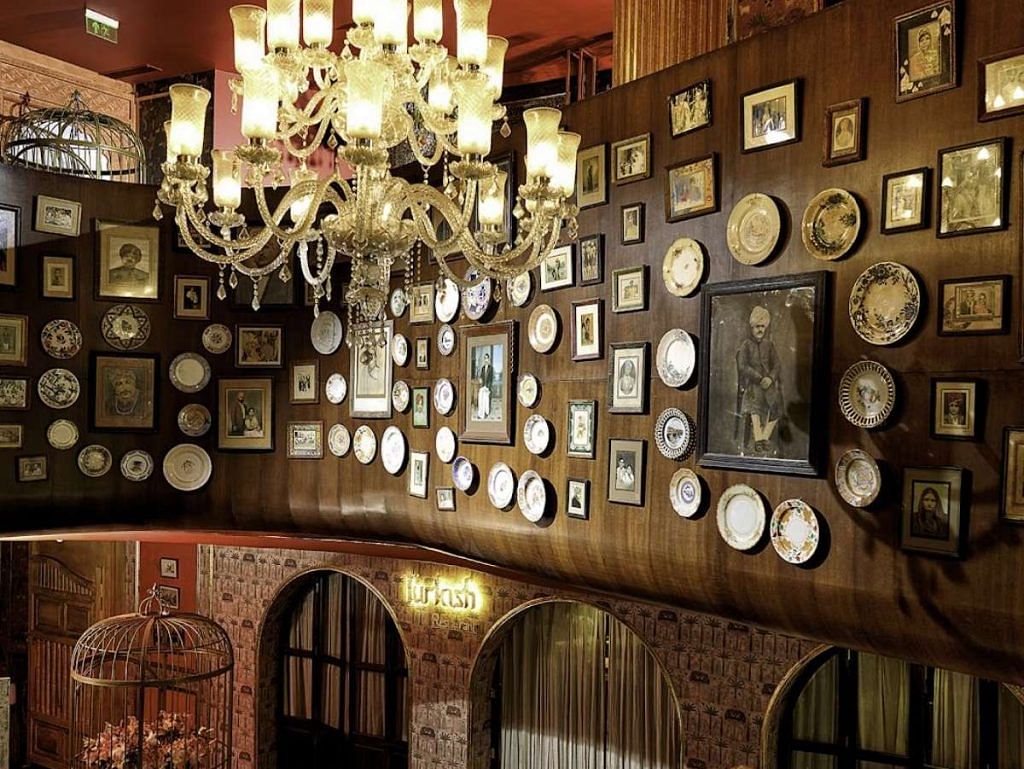
Even at Istanbul Baklawa, Cemil brought in designers from Turkey to infuse the space with his homeland’s heritage.
The gates mimic those of historic Turkish eateries, and the walls are painted in a soothing ‘Turkish blue’, or turquoise—symbolic of the country’s maritime history and the Mediterranean, and also often seen in the iconic evil eye amulets sold on every street corner in Turkey.
Turkish cuisine in Delhi’s restaurants is going back to its roots—not just doner house fare but rich Ottoman classics too, with dishes like mantı (stuffed dumplings topped with yogurt), yahni (a meat stew reminiscent of the Indian yakhni), and köfte making appearances.
“These meat dishes are part of the enduring legacy of Ottoman cuisine, which continues to inspire culinary traditions,” said Chef Gokhan Kesen, a Turkish consultant who has worked extensively in India, including at Khubani. He claims his family traces its roots back to the Ottoman Empire’s eighth generation.
Spice barrier
It’s 5pm on a weekday, and pre-dinner prep at the restro-bar Diablo is in full swing. Kitchen staff are marinating meat, skewering kebabs, and chopping piles of bell peppers. As soon as Chef Gokhan Kesen strides in, the team snaps to attention. With quick, sharp gestures, he directs them—the language barrier is no obstacle in the kitchen.
“Flavour is in the hands of the chef,” said Kesen, who also consults at Delhi’s Cosy Bar.
At 34, he has already worked in 29 countries, with India becoming his latest adventure in 2021 when he joined Khubani. Now one of the most in-demand Turkish cuisine consultants in the country, he’s constantly on the move—from Delhi to Pune, Bengaluru to Kashmir—advising six restaurant chains. He even plans to retire in India.
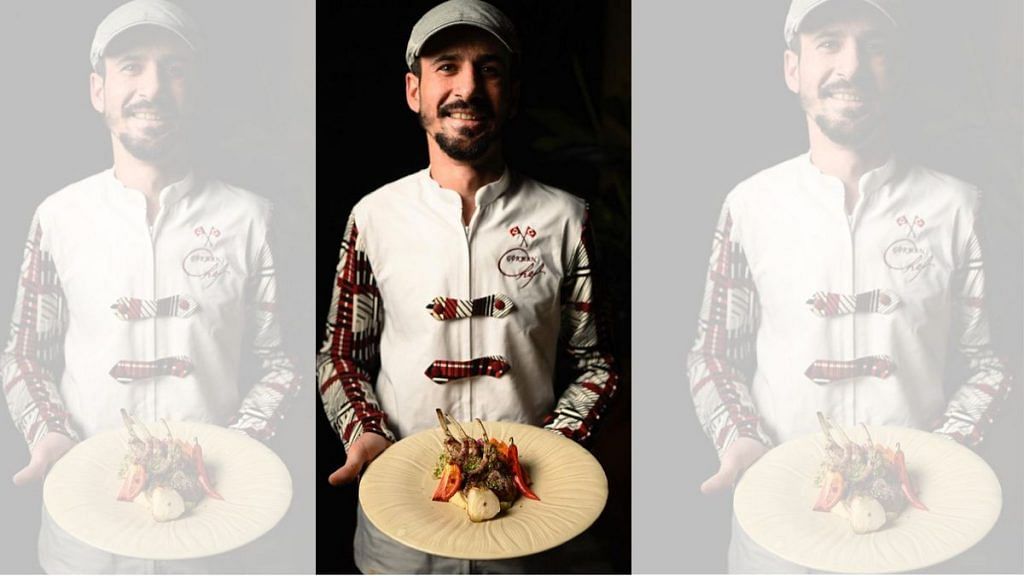
In his brisk no-nonsense manner, Gesen claimed he has established Turkish cuisine in over 1,200 resorts and 5,000 restaurants worldwide and champions its global appeal. He dismisses the notion that Turkish food is too bland for the Indian palate. According to him, many Indians are now seeking a break from heavily spiced dishes.
One such customer is 28-year-old engineer Nisha Chaurasia, who extolled the virtues of Turkish food as she tucked into her pita bread and lamb adana at Ophelia.
“Turkish food is tasty, healthy, and less spicy. My acne gets triggered with garam masalas and coriander powder,” she said.
Chaurasia had travelled all the way from Janakpuri West to Chanakyapuri on a Friday evening for a dinner date with her husband. She was late to the Turkish cuisine wave but a quick convert after stumbling across a YouTube documentary just a few weeks ago.
“My takeaway is that Turkish food is a healthier version of Indian food,” Chaurasia said. “But some might miss that spice kick which forms the core of our dal makhni and butter chicken.”
Chef Gokhan has a solution: the atom, a famous dip served at Diablo. Chaurasia has tried it too, describing it as a “flavour bomb”.
Made with hung curd, green chilli, salt, olive oil, and garlic, ‘atom’ delivers enough heat to send diners reaching for water.
“I adjust Turkish food to the Indian palate without compromising on the authenticity… it’s a tough spot to be,” Gokhan said.
Also Read: Indians have gone too far with fusion food. Gulab jamun tiramisu is perverse
‘You’ll forget your own cuisine’
Turkish food doesn’t really fall into the category of ‘foreign cuisines’ for Delhiites—it’s far more relatable than dishes like gyoza or polenta.
Many Turkish and Indian dishes speak to each other. Indian tikkas and Turkish tavuk sis are like siblings. India’s shorba finds its counterpart in corba, a rich soup. India has paneer, while Turkiye uses peynir, a soft cheese key to salads and pastries. Both cuisines rely on staples like eggplant and yogurt, with chicken, mutton, and lamb as top meat choices, even if spice profiles and preparation differ.
However, when it comes to shawarma, the Turkish and Indian versions couldn’t be more different. The Turkish version uses pita bread, toum (a garlic sauce), olive oil, and tender chunks of meat.
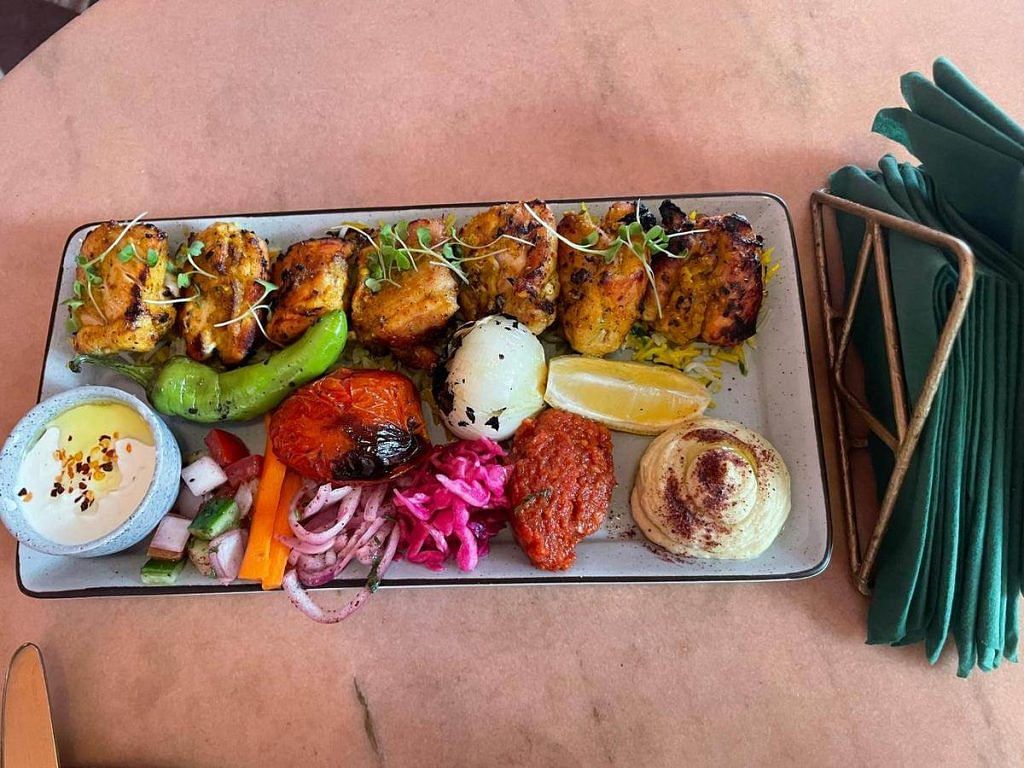
“The Indian version is a riot of unnecessary ingredients,” said Ata Turk proprietor Khan, describing how it often comes wrapped in rumali roti with minced meat, topped with mayonnaise, onions, tomatoes, coriander, spices, and a handful of other sauces.
“It’s never-ending,” added Khan, whose understanding of Turkish flavours isn’t just shaped by his travels but also by his wife, Amira Roushdy, an Egyptian who shares his passion for Middle Eastern cuisine.
Khan also pointed out the difference in kunafa. Indian versions often use vermicelli, while the authentic Turkish dessert is made with kataifi, a delicate pastry dough. The reason for this is largely cost—vermicelli is around Rs 200 per kilogram, while kataifi can range from Rs 900 to 1,000.
Reflecting on the early days of Ata Turk in Shaheen Bagh, Khan recalled being the only Turkish restaurant in the area. But by August 2024, when he moved to Greater Kailash 1, the scene had changed dramatically. At least five other restaurants, including 1Mysa, Arabaaik, and Galata Cafe, had cropped up, as had makeshift carts serving Turkish treats.
“It may not be all authentic but it shows the growing demand. They might be doing better because they serve Turkish dishes with Indian flavours… I can’t do that injustice,” Khan said.
Other aficionados agree that the quality of Turkish food in Delhi is still hit-or-miss. Travel management professional and F&B enthusiast Sameer Bawa, fresh from a “delicious” getaway in Istanbul, noted that he’s yet to find the “oomph, finesse, and artistry” he enjoyed in Dubai and Turkey. The 45 year old, a fan of Turkish cuisine since he first tasted it in Dubai nearly 20 years ago, is still searching for the perfect adana kebap in Delhi.
“I would rate Ophelia and Khubani 3.5 out of 5 and Ankara 3 out of 5,” Bawa said, suggesting that there is room for improvement even among Delhi’s top spots.
But Kesen is confident that Turkish food in India is only getting started.
“We look like you. Our cultures are almost the same. We are connected through our roots and families. It is easy for us to mix with the public here without feeling like outsiders,” Kesen said. “I bet Turkish food will make you forget your own cuisine.”
(Edited by Asavari Singh)



